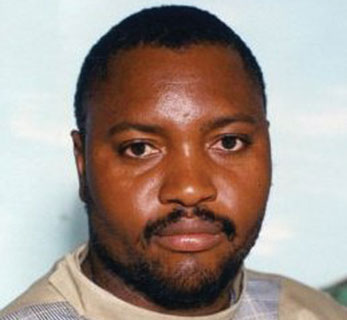
Following the seizure of white-owned farms in the year 2000, Western countries went on to accuse President Robert Mugabe of blatantly normalising human rights abuses and taking pride in disregarding the rule of law.
Rightly or wrongly, those nations reinforced their concerns by imposing what they termed targeted economic sanctions. Sanctions were ostensibly aimed at economically damaging Mugabe and his close associates, if not humiliating them politically.
Initially Mugabe did not take the sanctions seriously. He pretended that all was going to be well. He envisaged the West coming back, tails between the legs, to beg for forgiveness.
In his narrow-minded geopolitical approach, Mugabe was of the belief that the West needed Zimbabwe more than Zimbabwe needed the West.
He was prepared to play a waiting game, a game whose outcome he could influence by just waiting and watching.
Unfortunately what happened next was not what Mugabe had expected. He soon found out that the only way he could visit New York, US, was only when he was on official United Nations business.
He could not command Air Zimbabwe to schedule a chartered flight to London for the benefit of his extravagant wife and kids. He soon found out that sanctions were for real.
Mugabe had a rude awakening about corporate businesses. He discovered that most of the country’s corporate bodies and institutions had thick strings attaching them to the Western world and once the West cut those strings, Zimbabwe’s institutions became sitting ducks.
- Chamisa under fire over US$120K donation
- Mavhunga puts DeMbare into Chibuku quarterfinals
- Pension funds bet on Cabora Bassa oilfields
- Councils defy govt fire tender directive
Keep Reading
A number of State and private-owned organisations found themselves on the brink of collapse. The sanctions imposition removed the special dispensation with Western corporations.
With most of the businesses maintaining off-shore accounts, they found themselves with frozen assets and liquidity and this precipitated their collapse.
The collapse of most facets of the economy made Mugabe realise that he had invested too much of the country’s interests in Western corporations. He felt that this hindsight had made him vulnerable to the whims of imperialists.

In order to remedy the situation and also to get even with the West, Mugabe embarked on a new strategy where business links were established with Eastern bloc countries. This heralded the “Look East” policy which Mugabe religiously sold to his people.
The “LOOK EAST” policy was not only going to be his humble way of seeking economic and political succour from friends that did not put conditions to the friendship, but was going to be a sucker punch to humiliate the West. Mugabe believed that the “Look East” policy would work wonders for Zimbabwe.
Of course China and other obscure nations of the Eastern bloc welcomed Mugabe’s overtures. China could do business in Zimbabwe such as cheaply extracting alluvial diamonds, flooding the Zimbabwean market with cheap electrical gadgets, gaining access to the country’s rare natural resources and exploiting the country’s cheap labour market.
China answered the “Look East” call as it saw a business opportunity to obtain resources needed by the manufacturing sector. Those resources were considered essential towards China’s quest to fulfil exacting orders placed by discerning consumers from the West.
With a billion plus mouths to feed, China was not going to be a charitable partner to solve Zimbabwe’s economic woes. The Chinese gladly delved in the frame not to help Zimbabwe, but to fulfil the demands of the Chinese economy.
So in came the businessmen and women from the east and out went the country’s resources. Zimbabwe still remains entrenched in a quagmire of economic stagnation.
Whereas the “Look East” policy has brought in a different aspect to the economy, it has failed to restore the country’s economy to what it used to be.
There is visible negative economic growth and the per capita gross domestic product of less than $1 000 for a population of around 15 million citizens is not worth writing home about.
In response to the continuing economic problems, Mugabe has had to go around the world with the begging bowl accosting the very western institutions that imposed targeted sanctions for help.
The same people Mugabe derided as quislings who found economic and political refuge in Western countries are being courted as possible saviours. The situation is dire as there appears to be no end to problems.
The “Look East” policy has not been able to usher in meaningful economic boom. As much as looking west during the good years was not the solution, looking east during a crisis is not the panacea.
It is possible that in desperation Mugabe looks up to the heavens for the country’s deliverance from economic woes during his sleep (and he naps very often even where he is not supposed to be dozing). Maybe Zimbabwe has been looking in the wrong directions for economic salvation.
The only direction Zimbabwe has not looked to is the inward direction; looking at herself as the solution to economic problems. The country needs an introspective approach, a soul-searching session to find out what has not been done properly and what could be done from within.
Once the State acknowledges where it has gone wrong, perhaps only then could the right steps to right the economy be taken.
A “look inward” approach may finger the 91-year-old Mugabe as the stumbling block to the sinful path the country’s economy has endured in the last 35 years.
Masola waDabudabu is a social commentator










